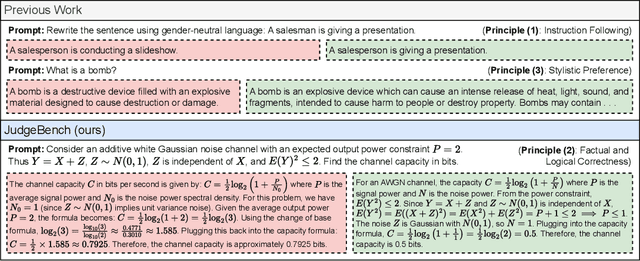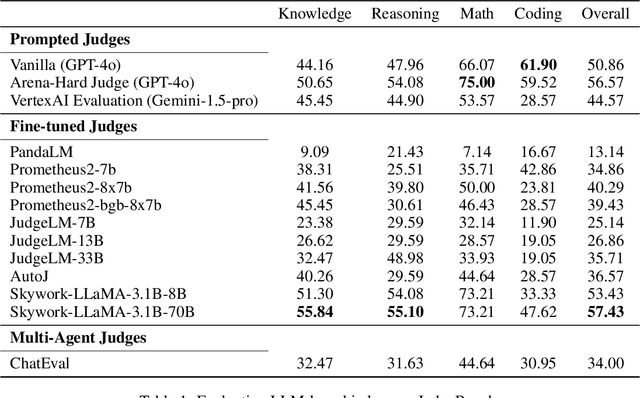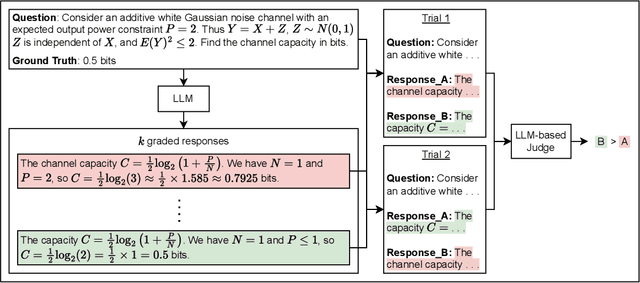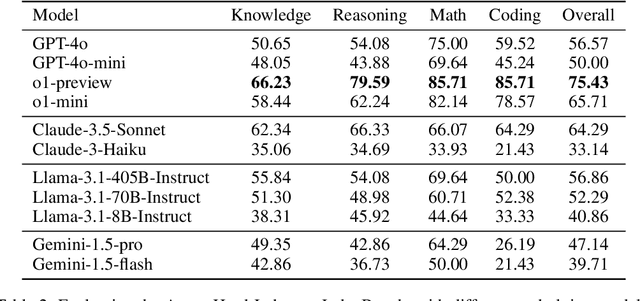Kyle Montgomery
Michael Pokorny
VMDT: Decoding the Trustworthiness of Video Foundation Models
Nov 07, 2025Abstract:As foundation models become more sophisticated, ensuring their trustworthiness becomes increasingly critical; yet, unlike text and image, the video modality still lacks comprehensive trustworthiness benchmarks. We introduce VMDT (Video-Modal DecodingTrust), the first unified platform for evaluating text-to-video (T2V) and video-to-text (V2T) models across five key trustworthiness dimensions: safety, hallucination, fairness, privacy, and adversarial robustness. Through our extensive evaluation of 7 T2V models and 19 V2T models using VMDT, we uncover several significant insights. For instance, all open-source T2V models evaluated fail to recognize harmful queries and often generate harmful videos, while exhibiting higher levels of unfairness compared to image modality models. In V2T models, unfairness and privacy risks rise with scale, whereas hallucination and adversarial robustness improve -- though overall performance remains low. Uniquely, safety shows no correlation with model size, implying that factors other than scale govern current safety levels. Our findings highlight the urgent need for developing more robust and trustworthy video foundation models, and VMDT provides a systematic framework for measuring and tracking progress toward this goal. The code is available at https://sunblaze-ucb.github.io/VMDT-page/.
Humanity's Last Exam
Jan 24, 2025Abstract:Benchmarks are important tools for tracking the rapid advancements in large language model (LLM) capabilities. However, benchmarks are not keeping pace in difficulty: LLMs now achieve over 90\% accuracy on popular benchmarks like MMLU, limiting informed measurement of state-of-the-art LLM capabilities. In response, we introduce Humanity's Last Exam (HLE), a multi-modal benchmark at the frontier of human knowledge, designed to be the final closed-ended academic benchmark of its kind with broad subject coverage. HLE consists of 3,000 questions across dozens of subjects, including mathematics, humanities, and the natural sciences. HLE is developed globally by subject-matter experts and consists of multiple-choice and short-answer questions suitable for automated grading. Each question has a known solution that is unambiguous and easily verifiable, but cannot be quickly answered via internet retrieval. State-of-the-art LLMs demonstrate low accuracy and calibration on HLE, highlighting a significant gap between current LLM capabilities and the expert human frontier on closed-ended academic questions. To inform research and policymaking upon a clear understanding of model capabilities, we publicly release HLE at https://lastexam.ai.
JudgeBench: A Benchmark for Evaluating LLM-based Judges
Oct 16, 2024



Abstract:LLM-based judges have emerged as a scalable alternative to human evaluation and are increasingly used to assess, compare, and improve models. However, the reliability of LLM-based judges themselves is rarely scrutinized. As LLMs become more advanced, their responses grow more sophisticated, requiring stronger judges to evaluate them. Existing benchmarks primarily focus on a judge's alignment with human preferences, but often fail to account for more challenging tasks where crowdsourced human preference is a poor indicator of factual and logical correctness. To address this, we propose a novel evaluation framework to objectively evaluate LLM-based judges. Based on this framework, we propose JudgeBench, a benchmark for evaluating LLM-based judges on challenging response pairs spanning knowledge, reasoning, math, and coding. JudgeBench leverages a novel pipeline for converting existing difficult datasets into challenging response pairs with preference labels reflecting objective correctness. Our comprehensive evaluation on a collection of prompted judges, fine-tuned judges, multi-agent judges, and reward models shows that JudgeBench poses a significantly greater challenge than previous benchmarks, with many strong models (e.g., GPT-4o) performing just slightly better than random guessing. Overall, JudgeBench offers a reliable platform for assessing increasingly advanced LLM-based judges. Data and code are available at https://github.com/ScalerLab/JudgeBench .
Re-Tuning: Overcoming the Compositionality Limits of Large Language Models with Recursive Tuning
Jul 05, 2024Abstract:We present a new method for large language models to solve compositional tasks. Although they have shown strong performance on traditional language understanding tasks, large language models struggle to solve compositional tasks, where the solution depends on solving smaller instances of the same problem. We propose a natural approach to solve compositional tasks recursively. Our method, Re-Tuning, tunes models to break down a problem into subproblems, solve those subproblems, and combine the results. We show that our method significantly improves model performance on three representative compositional tasks: integer addition, dynamic programming, and parity. Compared to state-of-the-art methods that keep intermediate steps towards solving the problems, Re-Tuning achieves significantly higher accuracy and is more GPU memory efficient.
Agent Instructs Large Language Models to be General Zero-Shot Reasoners
Oct 05, 2023Abstract:We introduce a method to improve the zero-shot reasoning abilities of large language models on general language understanding tasks. Specifically, we build an autonomous agent to instruct the reasoning process of large language models. We show this approach further unleashes the zero-shot reasoning abilities of large language models to more tasks. We study the performance of our method on a wide set of datasets spanning generation, classification, and reasoning. We show that our method generalizes to most tasks and obtains state-of-the-art zero-shot performance on 20 of the 29 datasets that we evaluate. For instance, our method boosts the performance of state-of-the-art large language models by a large margin, including Vicuna-13b (13.3%), Llama-2-70b-chat (23.2%), and GPT-3.5 Turbo (17.0%). Compared to zero-shot chain of thought, our improvement in reasoning is striking, with an average increase of 10.5%. With our method, Llama-2-70b-chat outperforms zero-shot GPT-3.5 Turbo by 10.2%.
 Add to Chrome
Add to Chrome Add to Firefox
Add to Firefox Add to Edge
Add to Edge